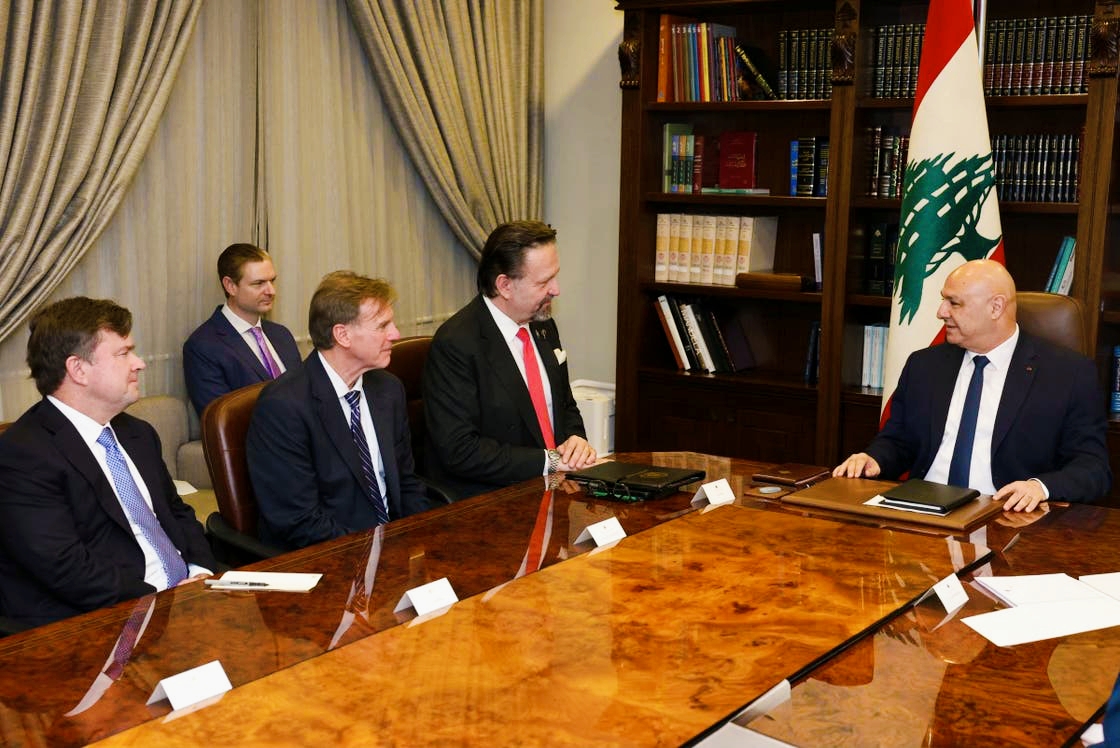U.S. Sets 60-Day Deadline for Lebanon to Implement Reforms and Address Hezbollah Financing

Under the banner of "Financial Reforms and Countering Hezbollah Financing", a high-level delegation from the U.S. Department of the Treasury arrived in Beirut on Monday, delivering a clear message to Lebanese officials that time is running out for Lebanon to demonstrate its commitment to financial reform and combatting terrorism financing.
According to informed sources, discussions during the U.S. delegation's meetings focused on "violations" within Lebanon's financial system, which the delegation stated are being exploited to funnel illegal funds to Hezbollah.
The delegation emphasized the urgent need for Lebanon to initiate financial reforms and to halt what they described as a "cash economy" that benefits the party in restoring its infrastructure.
* Millions Flowing to Hezbollah
Sources revealed that the U.S. Treasury delegation specifically mentioned the millions of dollars that have reached Hezbollah through illegal means in recent months, taking advantage of the prevalence of cash transactions in the Lebanese market.
The delegation warned that continuing down this path could have severe consequences for Lebanon's financial and economic stability, indicating that delays in implementing the required reforms would result in a loss of the remaining trust Lebanon has from the international community.
* 60-Day Deadline for Mandatory Reforms
According to the same sources, the U.S. delegation has granted Lebanese authorities a maximum of 60 days to implement a series of essential requirements, starting with a "plan to restrict arms to the state" and concluding with oversight of the cash economy and the initiation of radical financial reforms to end the financial chaos.
The delegation stated that the recently adopted bank restructuring law by Parliament "is insufficient and does not meet the required level", affirming that Lebanese citizens' trust in banks has yet to be restored, which means the market continues to rely on cash rather than banking transactions.
* Clear Warning: Lebanon May Be Left Alone
The U.S. delegation took a firm stance, suggesting to those they met that Washington and the international community may not continue to support Lebanon if real and effective measures are not taken within the given timeframe.
A member of the delegation reportedly stated that "what the Lebanese authorities have done over the past ten months has remained within the realm of words and promises only, without real execution", warning that Lebanon would be left to face its successive crises alone.
* Focus on 'Qard al-Hassan'
The U.S. delegation also addressed the issue of the "Qard al-Hassan" association, known in financial circles as "Hezbollah's central bank", which offers financial services and loans in exchange for gold collateral outside the official banking framework.
U.S. officials confirmed that the association has greatly benefited from the cash economy, and questioned why Lebanese authorities have not yet taken the necessary legal measures to shut it down, considering its continued operation a direct violation of international laws against money laundering and terrorism financing.
* Previous U.S. Visit and Detailed Investigations
Reports indicate that a U.S. Treasury delegation visited Beirut over two months ago, holding meetings with Lebanese financial and security officials.
During that visit, the delegation inquired about the structure of the Qard al-Hassan association and the "science and information" license under which it was established, aiming to determine the legality of its activities and its funding sources.
* Lebanese President Responds: Commitment to Combat Money Laundering
In response, Lebanese President Joseph Aoun informed the U.S. delegation that Lebanon strictly enforces laws and procedures related to combating money laundering and terrorism financing, emphasizing that Lebanese authorities impose severe penalties for financial crimes in all forms.
Aoun noted that these efforts are being made within the framework of laws adopted by Parliament, including amendments to banking secrecy laws and bank restructuring, as well as circulars issued by the Central Bank of Lebanon in this regard.
* High-Level U.S. Delegation
The U.S. delegation included prominent security and financial figures, including:
• Dr. Sebastian Gorka, U.S. Presidential Advisor for Counterterrorism.
• John Hurley, Under Secretary for Terrorism and Financial Intelligence.
• Bill Barrett, Chair of the Terrorism and Financial Intelligence Committee.
• Spencer Horwitz, Deputy Secretary for Terrorism and Financial Intelligence.
• Michael Romaïs, Advisor to the Under Secretary.
• Daniel Jackson, Director of Middle East Affairs at the Office of Terrorism Financing and Financial Crimes (TFFC).
• Nancy Dhadouh, Director of Counterterrorism and Threats at the National Security Council (Office of the Director of National Intelligence).
• Max van Amerongen, Director of Threat Financing at the National Security Council.
• And Rudi Attallah, Special Advisor to the President and Deputy Director of Counterterrorism at the National Security Council.
* Clear Message
With this direct tone, the U.S. delegation issued a clear and explicit warning to Beirut:
Either take swift action towards genuine reforms and control Hezbollah's funding sources within sixty days,
or leave Lebanon to its economic and political fate amid a crisis that shows no signs of resolution in the near term.
